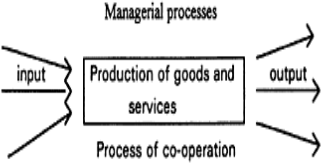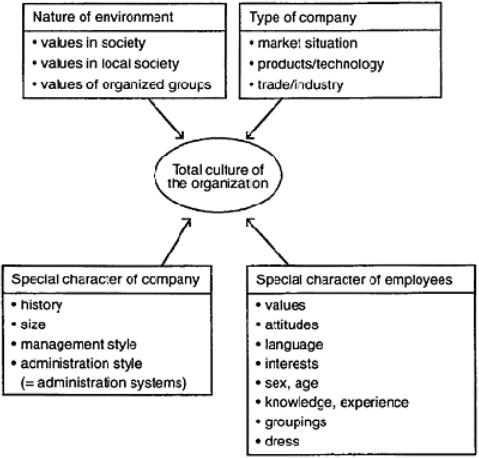SKEDSOFT
Introduction:
The concepts of culture and corporate culture have been introduced here on the assumption that there is an association between the quality concept and the corporate culture concept. Quality is neither objective nor subjective. Total Quality Management as a concept is a question of determining, developing and managing a company’s quality. Management literature enumerates different methods of attacking change.
Quality as a total assessment of the company’s supply and demand: 
- Quality has been developed as a concept of functional quality such as customer-felt quality, dual quality and total quality.
- One can say that the new quality concept now springing up is broadly a total assessment of the company’s supply and demand, but with the important addition that then it also becomes a question of the processes of production, management and co-operation involved in the supply and demand processes.
A view of the development of the theory of organization and management in this century shows a gradual movement from a narrow, rationalistic and instrumentalistic conception to a broader, more psychological and sociological viewpoint. A central part of this development is the concept of culture.
Main types of factors of influence determining the total culture of the organization:

- This model is general and it deals with the total culture of the organization and thus points to a number of elements which together form the culture of the organization but, at the same time, the model also points to a number of the elements which in practice must enter into the concept of quality culture.
- A brief description of these main elements are as follows:
• Nature of the environment:
As mentioned in the model, the nature of the environment includes factors like values in the local society and values of organized groups. The increasing interest in quality seen in recent years may be regarded as an example of changes in value in society in general and among special groups.
• Type of company
The type of company is a separate cultural factor. It is a question of the company’s market situation, its products/technology and the trade or industry it is in. The market and competition situation are relevant for the company’s quality situation and the same also applies quite traditionally to the product technology side.
• The special character of the company: The special character of the company is made up of its history, size, management style and administration style. The subculture concept is often included under management culture. In this context, especially in connection with the company’s history, reference should be made to the importance of the different stages of growth or development to the culture of the organization and thus to the management situation.